To my knowledge this following query is not too complicated, but it still takes more than 3 seconds. Any ideas on how to optimise this?
SELECT
wpp.ID, wpp.post_title, wpp.post_author,
wpp.post_status, s.supplier_company
FROM wp_posts AS wpp
LEFT JOIN wp_postmeta AS postmeta ON wpp.ID = postmeta.post_id
LEFT JOIN wp_term_relationships AS term_link ON wpp.ID = term_link.object_id
LEFT JOIN wp_terms AS terms ON term_link.term_taxonomy_id = terms.term_id
LEFT JOIN wp_teleapo_supplier AS s ON wpp.post_author = s.ID
WHERE wpp.post_type = 'post'
AND wpp.post_warning <> 'no_image'
AND wpp.post_status <> 'trash'
AND wpp.post_status <> 'auto-draft'
GROUP BY wpp.ID
ORDER BY post_date DESC
LIMIT 100 OFFSET 0
All my tables have around 2000~9000 posts now.
1) 15000 records in wp_posts but only around 3000 with WHERE wpp.post_type = 'post'.
2) around 9000 in the wp_term_relationships
But are prone to grow in the near future...
The Origin of the problem:
In the short query above, if I change:
GROUP BY wpp.ID
ORDER BY post_date DESC
TO
GROUP BY wpp.ID
ORDER BY wpp.ID DESC
My query time goes from 3.3 sec to 0.3 sec... However I'd like a way so I can still ORDER BY post_date!
Something that's even weirder is that the full search query down below goes at under 1 sec even when the GROUP and ORDER BY's are different...
EXPLAIN results for the short query:
id select_type table type possible_keys key key_len ref rows Extra
1 SIMPLE wpp ref type_status_date,post_type,post_status post_type 62 const 3351 Using where; Using temporary; Using filesort
1 SIMPLE postmeta ref post_id post_id 8 r_11524_jtc.wpp.ID 7 Using index
1 SIMPLE term_link ref PRIMARY PRIMARY 8 r_11524_jtc.wpp.ID 92 Using index
1 SIMPLE terms eq_ref PRIMARY PRIMARY 8 r_11524_jtc.term_link.term_taxonomy_id 1 Using index
1 SIMPLE s eq_ref ID ID 4 r_11524_jtc.wpp.post_author 1
These are the INDEXES I have:
The full search depending on the user wether or not he fills in some search fields is down below. The weirdest thing is that the search query below takes only 0.3 sec even if the ORDER BY column is different from the GROUP BY column!
SELECT SQL_CALC_FOUND_ROWS wpp.ID, wpp.post_title, wpp.post_author,
wpp.post_status, s.supplier_company,
GROUP_CONCAT(DISTINCT terms.slug SEPARATOR ',') AS allslug,
GROUP_CONCAT(DISTINCT terms.name SEPARATOR ',') AS allcatname
FROM wp_posts AS wpp
LEFT JOIN wp_postmeta AS postmeta ON wpp.ID = postmeta.post_id
LEFT JOIN wp_term_relationships AS term_link ON wpp.ID = term_link.object_id
LEFT JOIN wp_terms AS terms ON term_link.term_taxonomy_id = terms.term_id
LEFT JOIN wp_teleapo_supplier AS s ON wpp.post_author = s.ID
WHERE wpp.post_type = 'post'
AND wpp.post_warning <> 'no_image'
AND wpp.post_status <> 'trash'
AND wpp.post_status <> 'auto-draft' /* All search on post_title
and any postmeta value */
AND (post_title LIKE '%textile%'
OR postmeta.meta_value LIKE '%textile%')
/* extra filters. The one below is an example of a filter on
the user #324 but this field can also take the username
(supplier_company) parameters etc. */
AND ( wpp.post_author LIKE '%324%'
OR ( EXISTS
( SELECT 1
FROM wp_teleapo_supplier as s2
WHERE s2.ID = wpp.post_author
AND (s2.supplier_company LIKE '%324%'
OR s2.supplier_company_kana LIKE '%324%') ) )
OR ( EXISTS
( SELECT 1
FROM wp_postmeta AS postmeta2
WHERE postmeta2.post_id = wpp.ID
AND postmeta2.meta_key = 'input_comp'
AND postmeta2.meta_value LIKE '%324%' ) ) )
GROUP BY wpp.ID /* Filter on Categories!! */
HAVING ( allcatname LIKE '%apparel-and-accessories%'
OR allslug LIKE '%apparel-and-accessories%' )
ORDER BY post_date DESC
LIMIT 20 OFFSET 0
